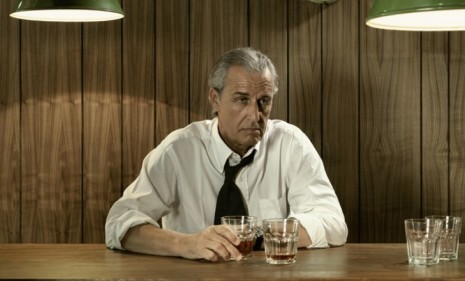How unemployment can kill you
A new study finds that the stress of joblessness can increase the risk of premature death by 63 percent

A free daily email with the biggest news stories of the day – and the best features from TheWeek.com
You are now subscribed
Your newsletter sign-up was successful
Anyone who's been laid off or downsized knows that unemployment is hard on morale. But according to a new study, it can also kill you. Researchers at McGill and Stony Brook universities found that being unemployed increases your chance of an early death by a shocking 63 percent. And it's worse for men — 78 percent, versus 37 percent for women. Why is not working so deadly? Here, a brief guide:
How did they get these numbers?
McGill sociologist Eran Shor and his team looked at 40 years' worth of research on 20 million people in 15 countries. In other words, it "was not the result of a quickie phone survey," says Lisa Johnson Mandell at Aol Jobs. The researchers screened for pre-existing health conditions and quality of health care, but the correlation between death and joblessness held across all 15 countries. That means, says Shor, that the "unemployment-mortality relationship is quite likely a causal one."
The Week
Escape your echo chamber. Get the facts behind the news, plus analysis from multiple perspectives.

Sign up for The Week's Free Newsletters
From our morning news briefing to a weekly Good News Newsletter, get the best of The Week delivered directly to your inbox.
From our morning news briefing to a weekly Good News Newsletter, get the best of The Week delivered directly to your inbox.
What's so deadly about unemployment?
Stress about money, finding a job, and social standing all lead to unhealthy habits. And the researchers are not just talking about "wearing your pajamas all day," says Max Read in Gawker. They mean "unhealthy habits like eating poorly, drinking too much, smoking, and watching the entire stretch of Law and Order with Michael Imperioli even though good episodes of SVU are, like, three channels away."
Why is it worse for men?
They feel obligated to be breadwinners, Shor says. "When a man loses his job, it still often means that the family will become poorer and suffer in various ways, which in turn can have a huge impact on a man's health by leading to both increased smoking, drinking or eating, and by reducing the availability of healthy nutrition and health care services."
A free daily email with the biggest news stories of the day – and the best features from TheWeek.com
What's a jobless person to do?
Shor says that public health agencies should be "targeting this with interventions," like cardiovascular screenings for unemployed people or workshops on how to avoid falling into risky behavior. While it may be tempting to smoke, drink, and TV-watch your jobless days away, says psychologist Kenneth Manges, people mistake those unhealthy habits for "tension-relievers, when in fact they are tension-exasperators." Instead, the jobless should join a support group for emotional support.
Is anything deadlier than being unemployed?
Yes, working too much. A new study in the Annals of Internal Medicine found that working 11 hours or more a day for a dozen years gives you a 67 percent higher chance of dying or having a heart attack than those working eight-hour days. It's unclear why, exactly, but chronic stress and sitting at a desk for long hours are likely culprits. So be sure to stand up and stretch every once in a while, "or even take a lap or two around the office," says Maria Vultaggio in Long Island Press. Or you could, you know, "try the unmentionable, clocking out a little early."
Sources: LiveScience, Vancouver Sun, AOL Jobs, Gawker, Long Island Press, Consumer Reports
-
 6 of the world’s most accessible destinations
6 of the world’s most accessible destinationsThe Week Recommends Experience all of Berlin, Singapore and Sydney
-
 How the FCC’s ‘equal time’ rule works
How the FCC’s ‘equal time’ rule worksIn the Spotlight The law is at the heart of the Colbert-CBS conflict
-
 What is the endgame in the DHS shutdown?
What is the endgame in the DHS shutdown?Today’s Big Question Democrats want to rein in ICE’s immigration crackdown